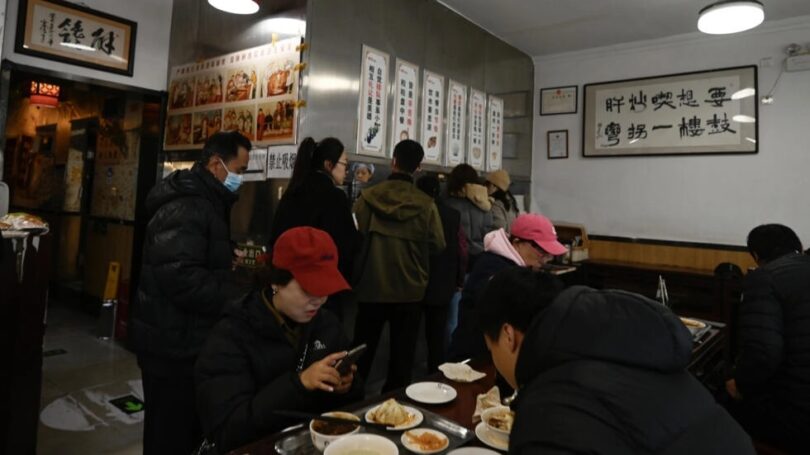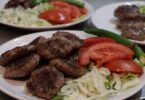BEIJING (AFP): A humble restaurant on a Beijing street serving up a hearty dish of pork liver, lungs and intestines was once the site of an unconventional China-US rapprochement.
On a 2011 visit, then US vice president Joe Biden went for lunch at Yaoji Chaogan, sparking a social media craze over his “noodle diplomacy”.
Outside the eatery in one of the capital’s historic hutong neighbourhoods this week, Chinese people expressed hope that a meeting between leader Xi Jinping and now President Biden might help the two men to cook up a diplomatic success of their own.
Biden and Xi will hold talks this week in San Francisco — their first in just over a year — set to address hot-button issues from trade to geopolitical tensions.
Near Beijing’s 700-year-old Drum Tower, passersby told AFP the two leaders needed to learn to get along for the sake of the world.
The China-US relationship is “tense, you can see that”, said economics student Yuan, who only offered her family name.
“But they’re also very closely linked,” she added.
“These are two very large countries with huge global economic systems, so this is very important. Their relationship has a great impact on the entire world’s economy.”
Outside the packed bistro — where steaming bowls of soup and buns offered a welcome respite from freezing weather outside — retired driver Yu said he welcomed the meeting between the rival powers’ leaders and expressed a little admiration for the US president.
“It’s definitely good,” he told AFP. “People certainly look forward to it.”

“Most of us older people in China have retired by now,” he said. “But (Biden) is still fighting for the American people.”
“He must have endurance, as well as support from the American people.”
Great power politics
China-US relations have plummeted since Biden dined in the Chinese capital with Beijing and Washington clashing over a host of issues from trade to Taiwan.
Opinion in China is hard to gauge — media is heavily censored and toes the party line, while members of the public are typically reluctant to share thoughts on controversial topics with foreign outlets.
Driver Yu said he wasn’t concerned with “upper-level matters” like the current state of relations.
But given their differences, as well as contrasting strengths, he said it was crucial that they learn to get along.
“The United States is definitely stronger than China in some aspects, and China is definitely stronger than the United States in other aspects,” he said.
“Major countries complement each other.”

But some pointed to the yawning gap between Beijing and Washington as making any compromise tricky — and echoed the Chinese government’s position that economic sanctions on its companies are part of an effort to stunt the country’s rise.
Biden, student Yuan said, “definitely focuses on defending his own country’s interests”.
“He may make some decisions that are beyond our comprehension,” she said.
And others were hostile to the US president, suggesting he should spend more time on fixing problems at home rather than solving global issues.
“Ever since Biden took office the whole global economy has been going downhill,” one man who declined to be named told AFP.
“He should focus on the economy, not on these wars in Ukraine and Israel.”
Asked if he thought Biden’s age was an important factor in making his opinion, he said: “It’s not a matter of age. China’s leaders are old too.”







